OUTNUMBERED
EXPLORING THE DUALITY OF FEMININITY AND THE MALE GAZE THROUGH THE EXPERIENCES OF FEMALE ARTISTS IN THE MUSIC INDUSTRY.
My first year personal publication researched the experiences of female musicians in a highly male-dominated industry.
After seeing an Instagram post from Indie Armstrong of Overpass, sharing her thoughts about the sexualisation that comes from being the only woman in her band, I decided to look into themes of femininity and rebellion against gender stereotypes that can be seen from prominent female artists in the music industry.
I created a short publication, Outnumbered, combining topical research with the relevant content I created in workshops over the first few months of studying Fashion Communication and Promotion.
This project helped to deepen my understanding of gender representation and the impact of the male gaze in the music industry, particularly its influence on female artists. I utilized research skills to gather insights from industry voices and social media, to interpret how femininity and rebellion are portrayed in a male-dominated space.
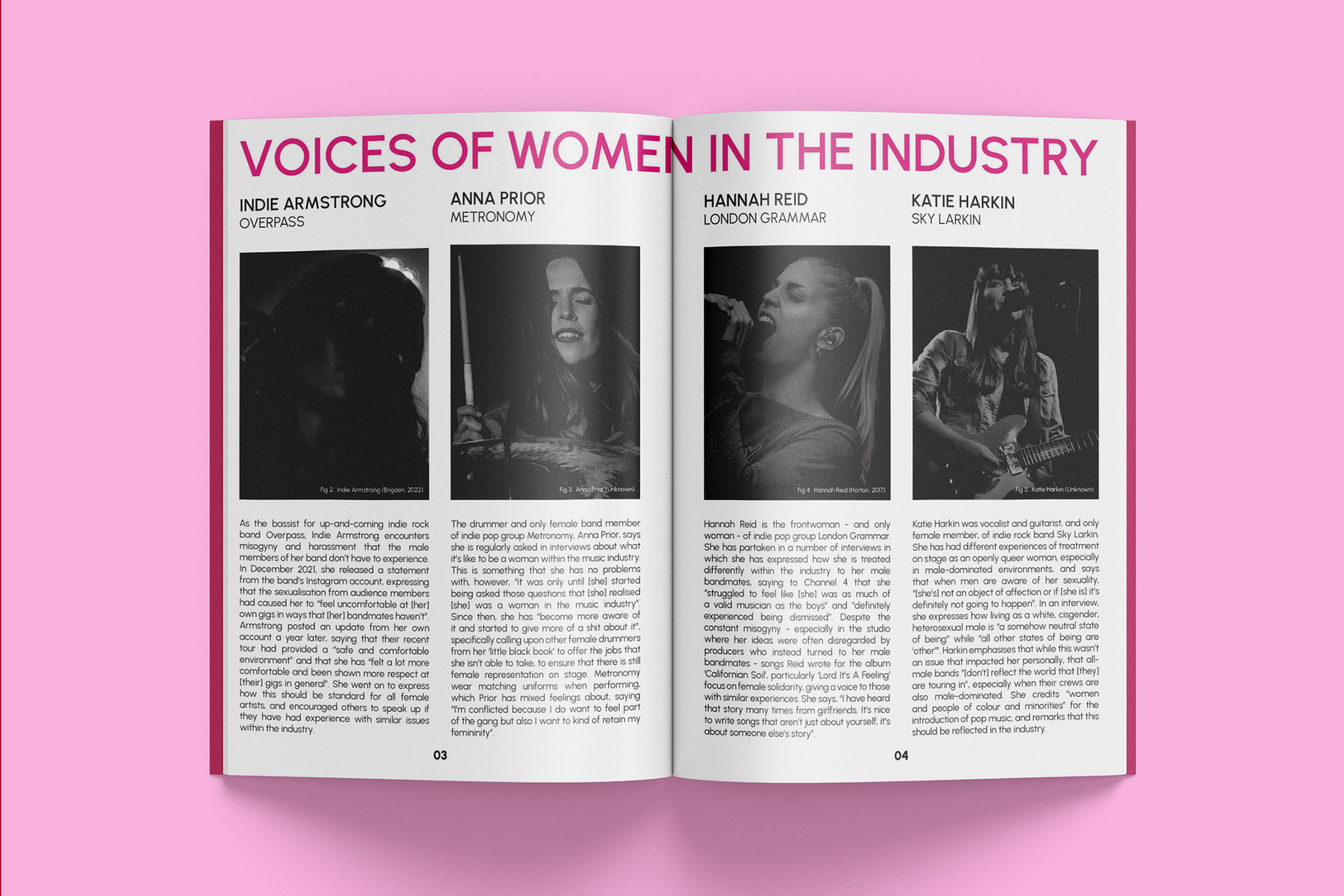
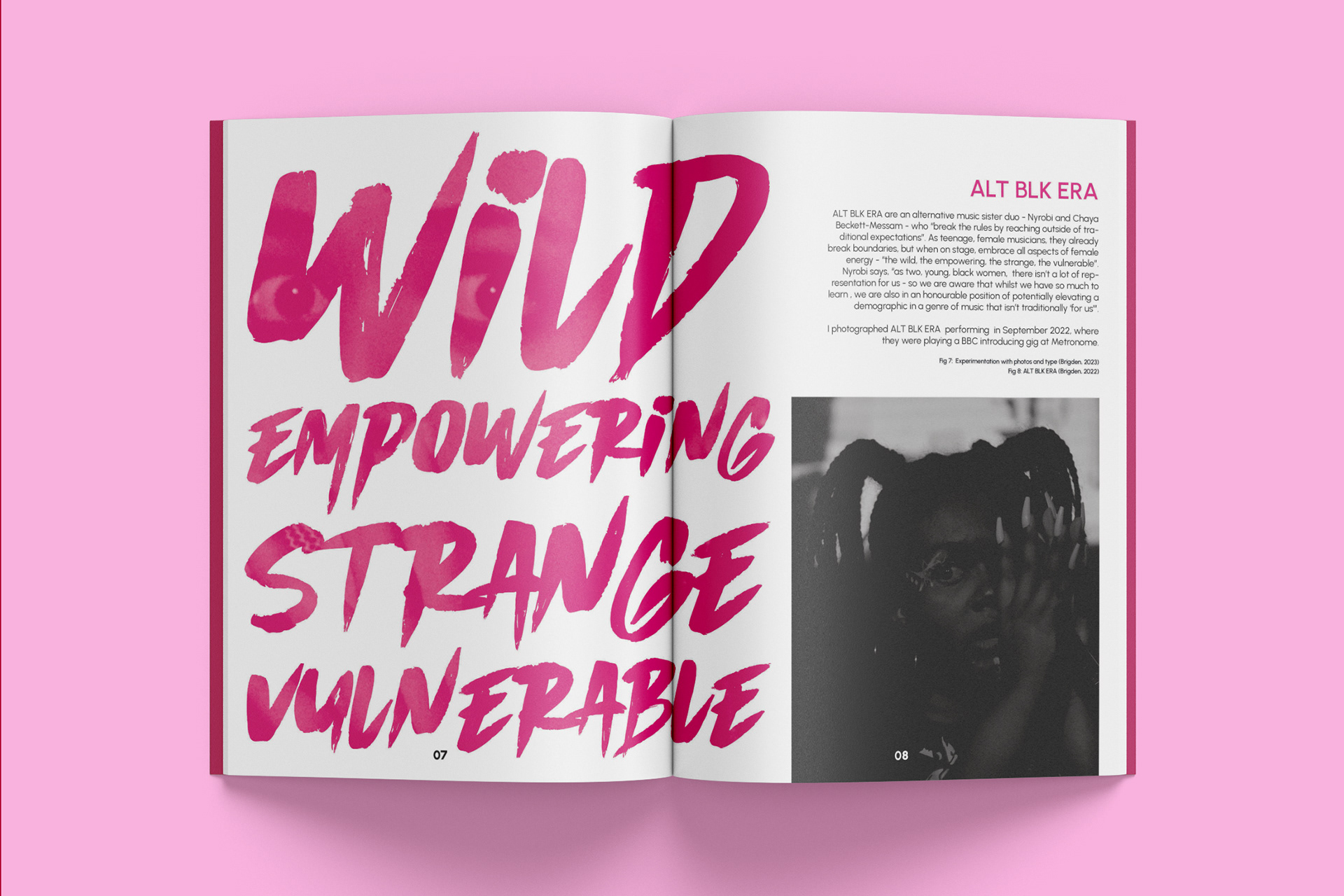
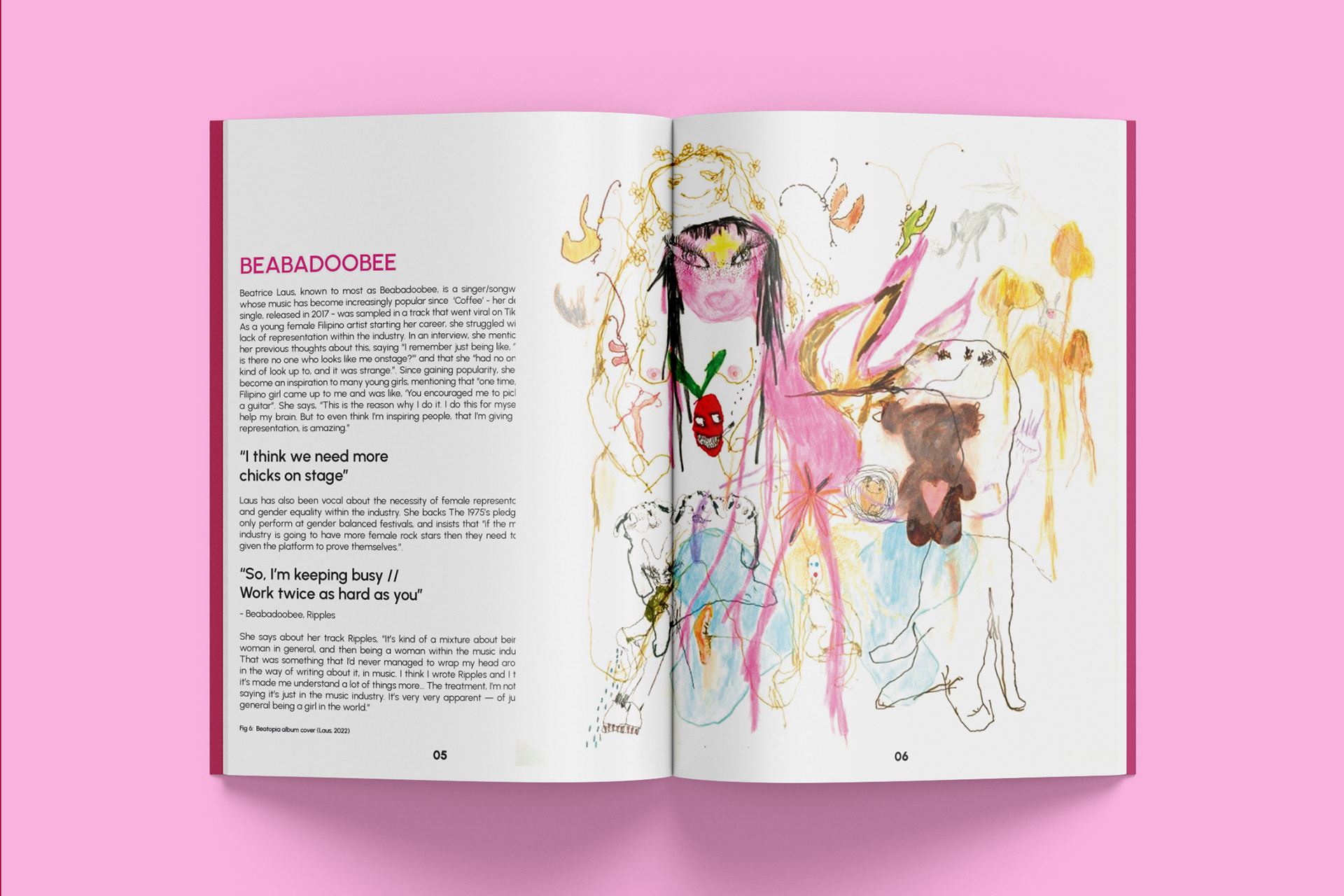
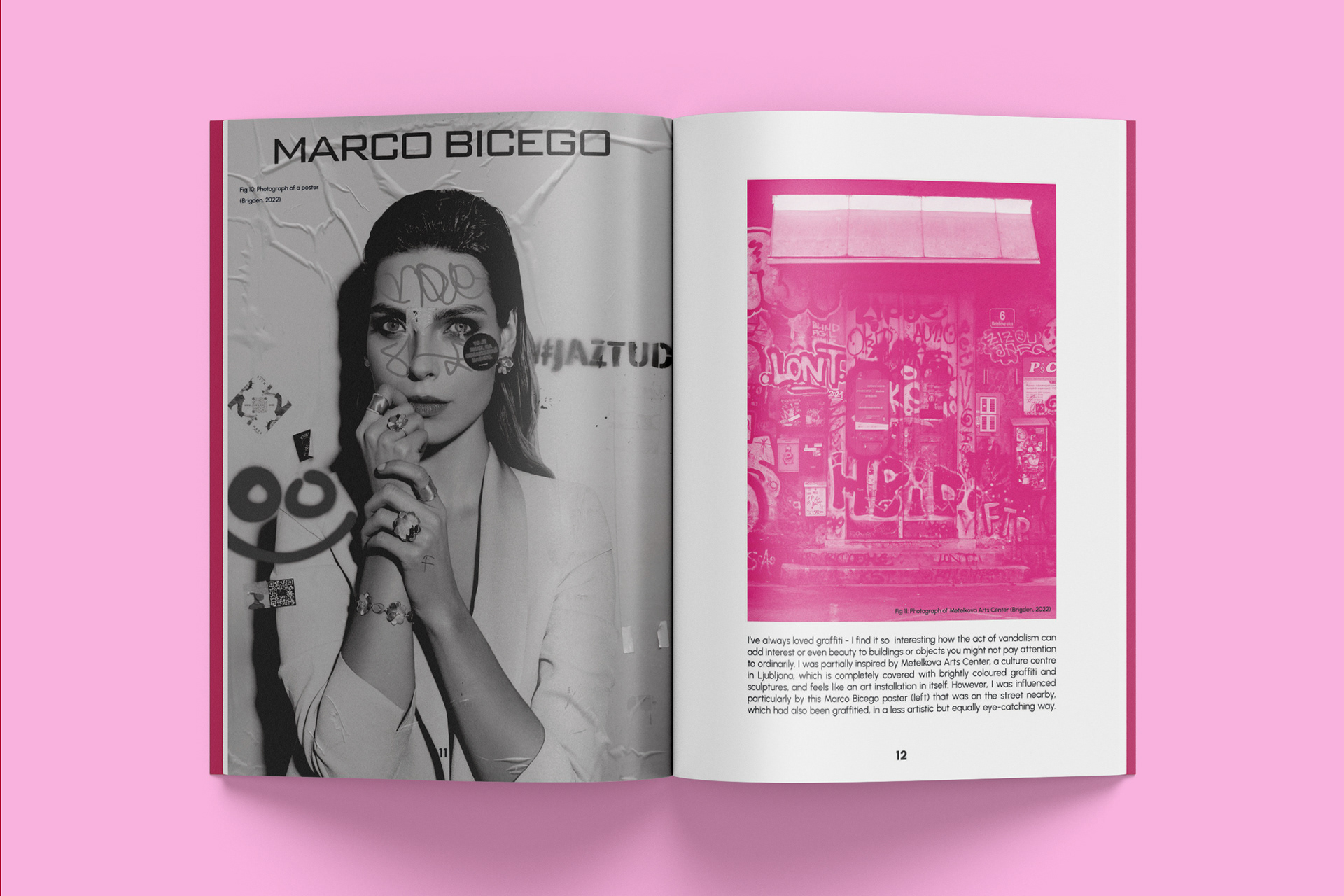
Researching the opinions of prominent women in the music industry, I found that these artists often feel overlooked compared to their male band members, or feel that they're sexualised by fans when performing live. Speaking out about these issues, Indie Armstrong has been able to create a more "safe and comfortable environment" on recent tours, which shows how raising awareness of these issues is able to create a more equal and positive atmosphere at shows.
Exploring the narratives of emerging artists like ALT BLK ERA further revealed how femininity and rebellion coexist as acts of defiance against the male gaze. Their performances embrace rawness and vulnerability, challenging traditional expectations - by claiming the space unapologetically and rejecting stereotypical representations, they contribute to a growing movement towards a more empowering environments for female artists in live music settings.
Listening to music written by female artists, the theme of inequality is often prominent - in her song Ripples, Beabadoobee writes, "So, I'm keeping busy / work twice as hard as you", in reference to how much more difficult it is for women to make it in the industry.
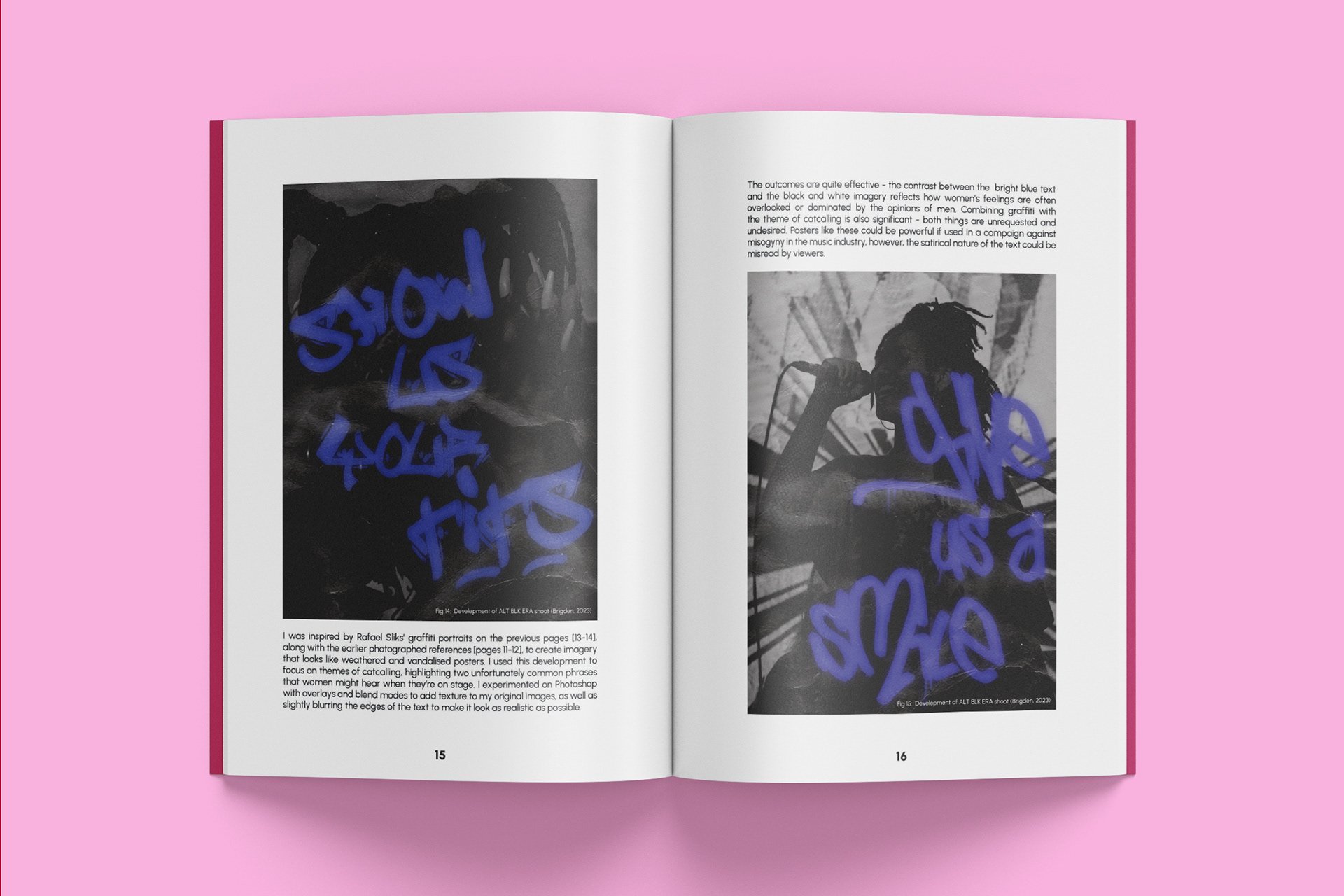
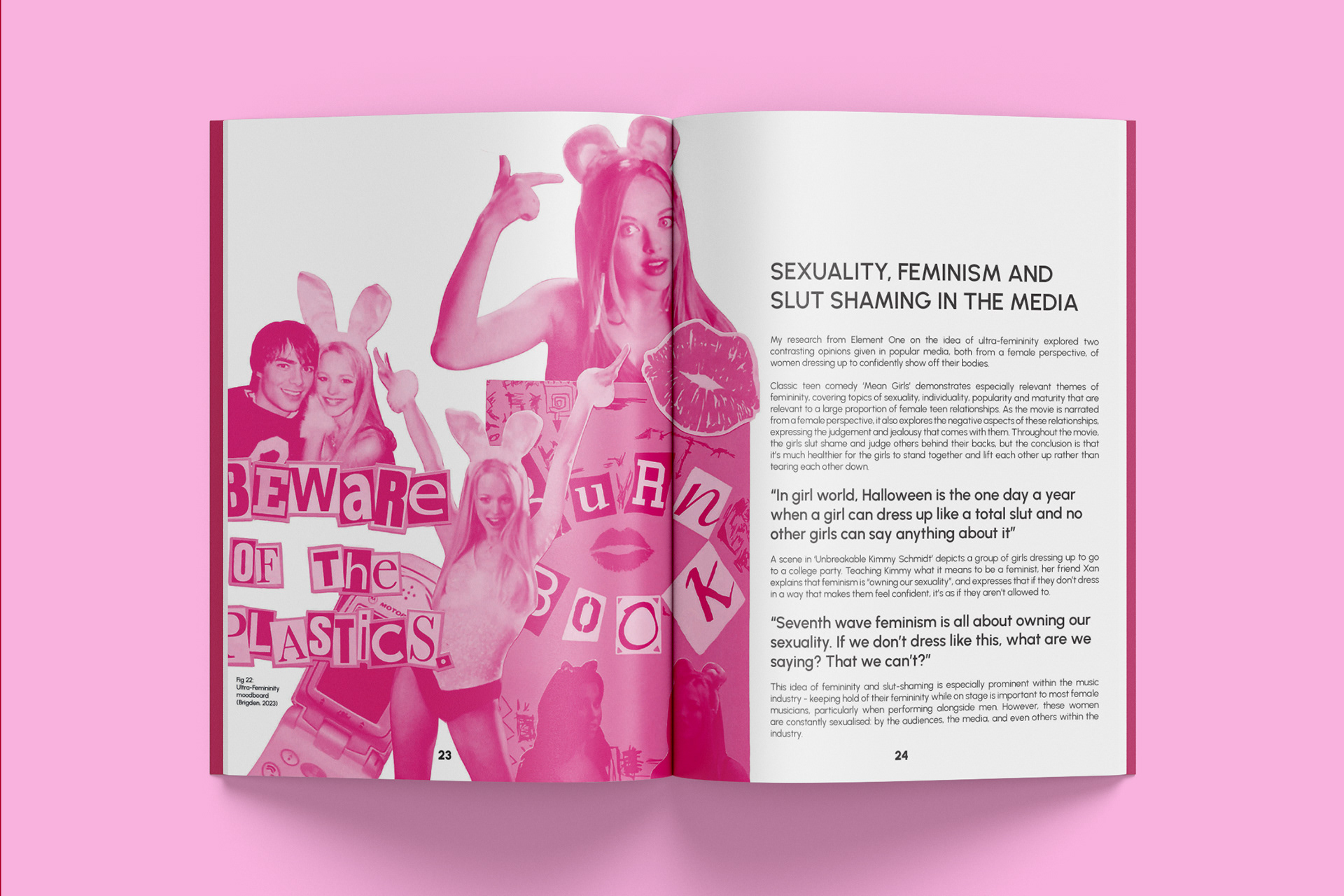
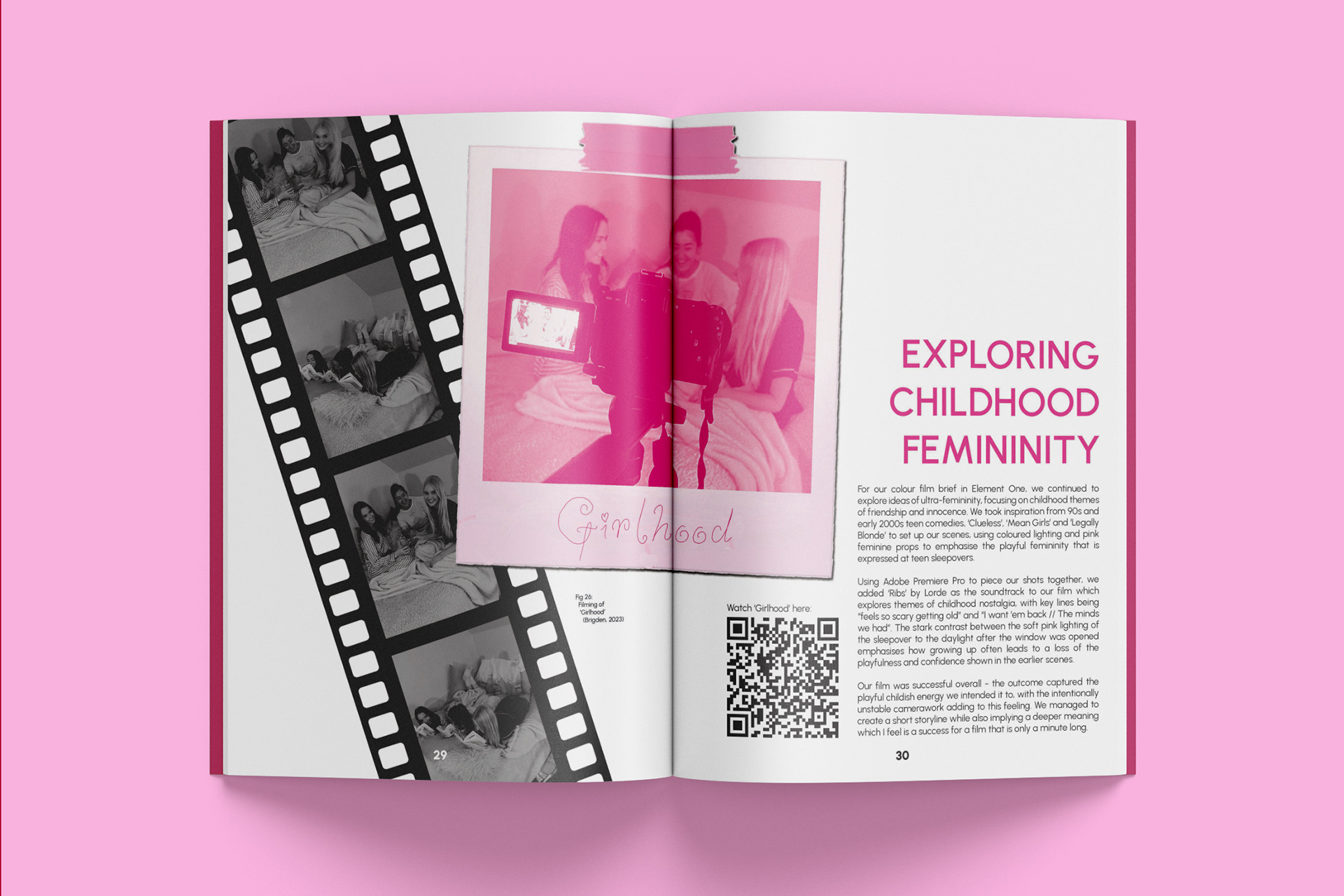
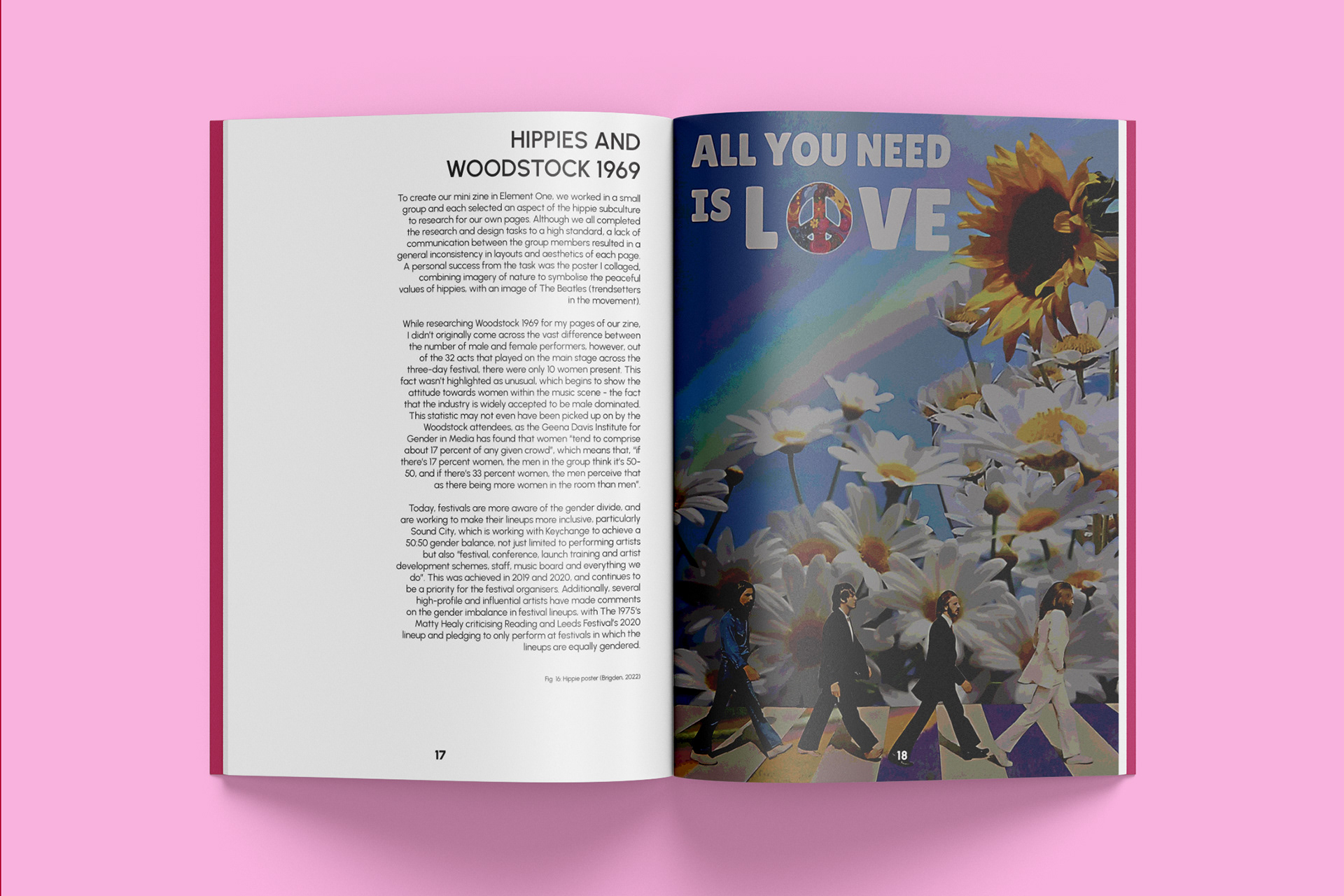
In FCP workshops, we explored the theme of ultra femininity - I found it interesting to compare quotes from media which compared the idea of dressing up and "owning our sexuality", to acting "like a total slut". This reflected my previous research, mirroring the feelings that artists have about dressing up to go on stage.
The colour film we created (scan the QR code to watch) was based around innocence, focusing on the playfulness of a childhood sleepover. The stark contrast of daylight at the end of the film suggests the loss of innocence children - especially girls - experience as they grow up.
I also created graffiti-style pieces inspired by Rafael Sliks, adding physical disruptions to my photographs in order to reflect the disturbance of catcalls that female artists might experience while performing. The contrast between the bright blue text - highlighting two unfortunately common phrases - and the black and white imagery reflects how women's feelings are often overlooked or dominated by the opinions of men.
“I'll still enjoy dressing up no matter how people act, but it's just a reminder that men will sexualise you whether you're conscious of it or not” [indie armstrong, 2022]
This research helped me realise how much of an impact constant sexualisation and the male gaze can have on female musicians. Keeping hold of their sexuality onstage, in male dominated environments, is one of the biggest problems faced by female artists, and it is disheartening that in doing so, they often receive harassment that isn't experienced by male performers who are in the same position.
This topic was incredibly insightful to research, and it felt much more personal and relevant to be looking into experiences of artists who I've seen live or even worked with. Despite it being recognised as a problem, the indie and alternative music scene still has a long way to go to reach complete gender equality - the women I have looked into, along with countless others, speaking up about these inequalities is a crucial step to achieving a more balanced and comfortable environment for women in all roles in the industry.